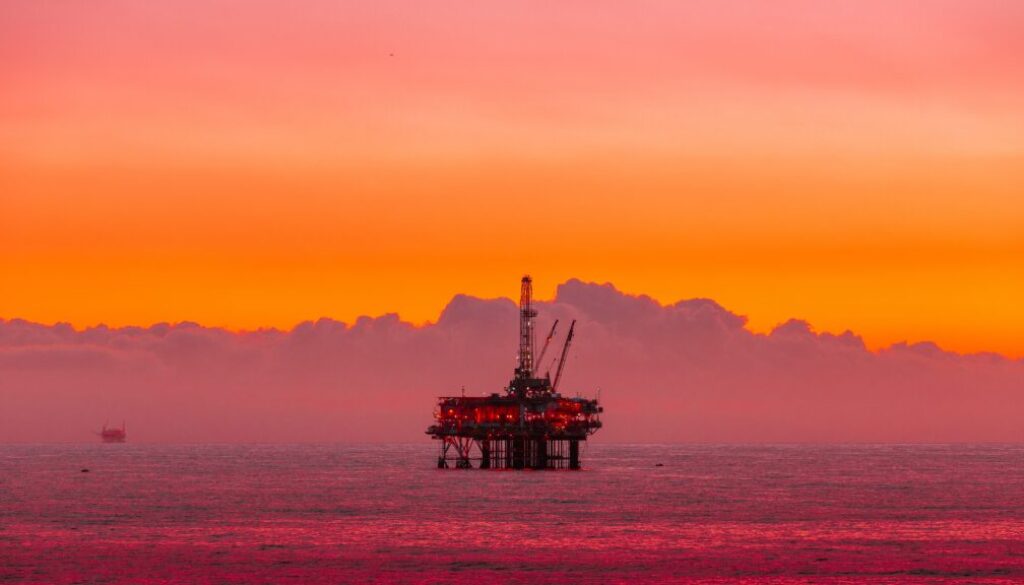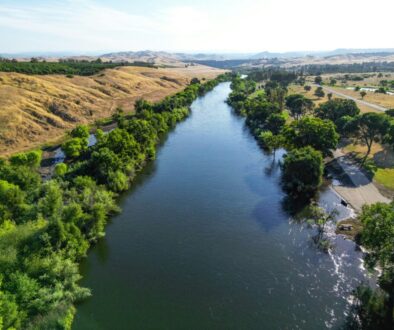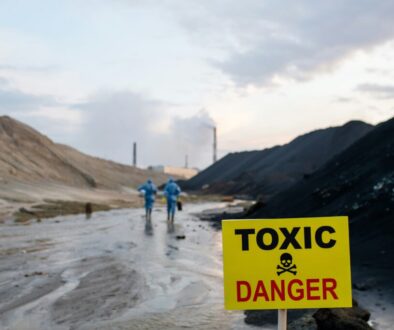Postcard from California: State takes on Big Oil for decades of climate lies
 California fired its opening salvo against the oil and gas industry two years ago, with Gov. Gavin Newsom’s order banning the sale of new gasoline-powered cars and trucks after 2035. In April, the offensive escalated, as the California Air Resources Board (CARB) ordered a phaseout of diesel trucks and locomotives starting in 2036. The state opened another front in June, establishing a watchdog agency to investigate gasoline-pump price spikes and recommend fines for oil companies deemed guilty of gouging customers.
California fired its opening salvo against the oil and gas industry two years ago, with Gov. Gavin Newsom’s order banning the sale of new gasoline-powered cars and trucks after 2035. In April, the offensive escalated, as the California Air Resources Board (CARB) ordered a phaseout of diesel trucks and locomotives starting in 2036. The state opened another front in June, establishing a watchdog agency to investigate gasoline-pump price spikes and recommend fines for oil companies deemed guilty of gouging customers.
Now the state has dropped its biggest bombshell yet: a monumental lawsuit against five of the world’s largest petrochemical companies for their “decades-long campaign of deception” about the harm of their products to the planet’s climate, and the disastrous and costly impacts of the climate crisis on California.
The 135-page lawsuit, filed last week in San Francisco County Superior Court, alleges that ExxonMobil, Shell, Chevron, ConocoPhillips and BP (formerly British Petroleum) knew since the 1950s that burning fossil fuels would heat up the climate with devastating consequences, but covered up the truth instead of alerting the public. The suit also names as a defendant the American Petroleum Institute (API), the industry’s trade association. The defendants are accused of fraud, negligence, product liability, false advertising and creating a public nuisance.
“Oil and gas companies have privately known the truth for decades — that the burning of fossil fuels leads to climate change — but have fed us lies and mistruths to further their record-breaking profits at the expense of our environment,” state Attorney General Rob Bonta said in a news release. “From extreme heat to drought and water shortages, the climate crisis they have caused is undeniable. It is time they pay to abate the harm they have caused.”
Unlike California’s gasoline and diesel bans and creation of a gas price regulatory agency, the state’s lawsuit is not the first action of its kind in the nation. The nonprofit Center for Climate Integrity (CCI) says more than 40 US states and cities have taken fossil fuel companies to court for climate deception.
But “[w]hat’s exciting about this case,” wrote Amy Westervelt of the nonprofit climate reporting collaborative Drilled, “is that precisely because it is coming on the heels of those others, it’s taken the strengths of all of them . . . and rolled them all into a super-case. And then of course, California is massive: it’s the nation’s most populous state, the world’s fifth largest economy, and it faces every climate impact there is.”
The lawsuit doesn’t specify the monetary damages California is seeking. But Bonta told the Los Angeles Times it will be “a very, very large number,” in line with the tens of billions of dollars California taxpayers have paid out for damages from climate-linked disasters such as wildfires.
The money would go into a “nuisance abatement fund” to pay for efforts to mitigate and adapt to the impacts of climate change, and to clean up and protect polluted air, water, and other natural resources. Bonta promised to make aid to environmental justice communities a priority. The fund would also pay for legal action to hold oil and gas companies accountable for false advertising and “greenwashing,” as in the case Bonta recently brought against the natural gas utility covering most of Southern California.
Damning evidence of what the oil companies knew and when they knew it has been revealed through investigations by the nonprofit advocacy group Greenpeace and by The Guardian, Los Angeles Times and Inside Climate News. Among the dozens of examples in the California lawsuit:
• In 1959, addressing oil executives at an API meeting, scientist Edward Teller warned that the increase in temperatures caused by even a modest rise in fossil fuel emissions “will be sufficient to melt the [polar] icecaps and submerge… the coastal cities.”
• In 1979, an internal Exxon memo said: “[T]he present trend of fossil fuel consumption will cause dramatic environmental effects before the year 2050… The potential problem is great and urgent.”
But rather than heeding these “dire and repeated warnings,” the lawsuit argues, the oil companies and API kept them secret and conducted a decades-long – and still ongoing – campaign to deny or cast doubt on climate science and stop or delay government initiatives to cut fossil fuel emissions.
The lawsuit is certain to take years and is could eventually go to the US Supreme Court. The defendants have yet to file a formal response, but API, Chevron and Shell each told NPR that the courts are not the right venues to address climate policy.
But the lawsuit is not about climate policy. It’s about holding the oil and gas industry accountable for the big lie they have perpetrated, by making them pay for the damage their products caused. And the Supreme Court recently ruled that state and local governments’ climate lawsuits should be tried in state courts, clearing the way for dozens of cases to move forward, which could unearth more evidence of fraud and coverup.
California has experience and expertise in suing corporations for damages done by their products. In 2019, the biggest US paint companies agreed to pay California cities and counties $305 million to clean up toxic lead paint, which the state charged the companies knew could permanently damage children’s brains.
That case took almost 20 years. And as the climate lawsuit makes its way through the courts, California is not calling a ceasefire in its war on Big Oil.
State legislators just passed a first-in-the-nation measure to require large US-based companies doing business in California to publicly disclose their greenhouse gas emissions – not only those they directly generate, but through their products’ entire life cycle. Newsom says he’ll sign it. Californians will be able to see for themselves which companies are the biggest climate polluters and which are telling the truth about their impact on the climate.
More than a dozen major corporations, including Apple, Microsoft and Walmart, supported the bill. The Western States Petroleum Association, the lobby for Exxon Mobil, Shell, Chevron, ConocoPhillips and BP, spent more than $3.9 million trying to kill it. The people of California will see them in court.
(Featured photo by Arvind Vallabh on Unsplash.)
- Bill Walker has more than 40 years of experience as a journalist and environmental advocate. He lives in California’s San Joaquin Valley.
(Opinion columns published in The New Lede represent the views of the individual(s) authoring the columns and not necessarily the perspectives of TNL editors.)
 EWG
EWG


